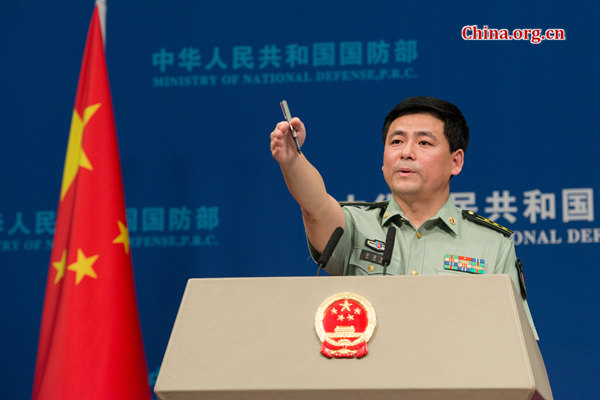Remarks at Mia Freedman’s ‘Work, Strife, Balance’ book launch
PRIME MINISTER:
Well thank you very much Caroline and Mia, congratulations – congratulations on this wonderful book, ‘Work, Strife, Balance’.
You know John Howard used to call this the barbeque stopper issue. What you’ve explained here is that of course, it’s impossible to achieve the ideal balance – everybody has to approach it in their own way.
You’ve set out your own life’s journey which is an example as Caroline said, of agility and innovation.
The business you’ve created here, we’re surrounded by all of your team, is an example of somebody that decided to break out of the mould, to do her own thing, to set out on her own path on her own terms.
That is exactly the example that everybody should take on board.
Because we now have the ability in 2017, more than ever, to do that.
So many of the barriers to enterprise, to innovation, have been broken down by technology – the very technologies that Mamamia has taken advantage of, the internet, the smartphone, social media. All of those platforms and technologies that as Mia describes in her book, her old media employers were resistant to, when you were working in the magazine business.
But I think the important lesson here for men, speaking as a man, as your local member, is the reminder that all of us are in it together. All of us, men and women owe it to each other to support each other.
You know, so much of that challenge to find the ideal balance or get closer to it, depends on having more flexible workplaces.
Now clearly there is a lot that governments can do and as you know we’ve invested additional billions of dollars into better and more flexible, more equitable child care.
But the biggest barrier I’ve found over the years – and Uncle Julian of course used to work with me and Lucy in years past, so he knows very well how Luce and I operated – one of the biggest challenges that employers face is just a lack of imagination. I mean workplaces can be much, much more flexible with all of the technology we have today. But often employers are lacking in imagination, fail to realise that with all of the collaborative tools that we’ve got, whether it’s Whatsapp or Google Docs or just simply the ability to be connected everywhere and at any time, we don’t need to be tying people down to the standard 9 to 5 regimen.
We should be focused on our teams – on what they produce. That’s why when Luce and I had our own businesses for many years, we always had a very, very, flexible family-oriented approach. They were strong businesses, successful businesses, but we were focused on what people produced, not how many hours of face time they had at the office.
That of course should apply to men and women.
All of us can lead more flexible lives that enable us better to get that work-life balance, that family balance, family work balance to achieve that more easily nowadays.
So imagination is the key. That’s why it’s important I think, for model employers to be better talked about, for examples to be better understood so that people can model themselves on them.
Certainly I know in my own office, in the Prime Minister’s Office, recognising it’s probably one of the more intense working environments in the country, nonetheless we try very, very hard, always to maintain an environment which supports families, which supports that flexibility that enables people to be their most productive, their most loving and their most engaged.
Now, there are so many good pieces of advice in this book, and there’s two that I want to draw your attention to.
Mia sets out at the end, advice to her daughter: “Future Lessons For My Daughter”.
This is a very powerful passage. She says: “Seek out men who love women, who identify as feminists, who aren’t afraid of a woman’s strength, or beauty or power. Seek out partners who celebrate your success as if it’s their own and who are willing to lean in and out of family and work as you do the same. Complimenting and facilitating true partnership is the only way you can succeed. Feminism does not exclude men, hell no. We need all the soldiers available to help us fight for equality.”
“Also,” she adds, practical woman that she is: “Without men, we can’t make more feminists.”
[Laughter]
Look, that has been the basis of Lucy and my partnership over, well, nearly 40 years now – a very long time. We were children when we first met. In fact, when I first asked Lucy to marry me, she said: “Can’t we wait until we grow up?”
[Laughter]
We did, or I think we did. I think we did. We were both certainly adults. But it’s a long time ago and it will continue forever. But I want to add another piece of great advice here.
She says here in point 25, she says: “If a man ever seriously tries to tell you wat to wear, run fast in the other direction”.
And then she goes on to say: “Be aware that a man buying clothes for a woman can be a form of control.”
But then adds, again, practical as ever: “A woman buying clothes for a man is just a public service.”
[Laughter]
So this is a wonderful book Mia, congratulations.
You’ve underlined the challenges, the difficulties, the impossibilities of finding that ideal balance. But you’ve been unfiltered in the way you’ve set it out, you’ve been so honest and provided, both in this, but above all in your own life such a great example and a reminder that girls, that women, can do anything and everything and should.
It is part of our job, all of our job, men and women, working together to ensure that we create the environment that is flexible enough, respectful enough, loving enough to enable each of us to realise their full potential, in every aspect of their lives.
So I’m honoured and delighted to be here as your local member to launch this book in the bosom of your family in every respect, both the Mamamia family and the Freedman and Lavigne families as well.
So it’s great to be here – thank you very much.
[ENDS]

